Prepping means different things to different people, and if you are a prepper that is about more than just having three or four days worth of supplies on hand and a map in the glove box of your car, you are probably thinking big picture, long-term and sustainable plans for the future.
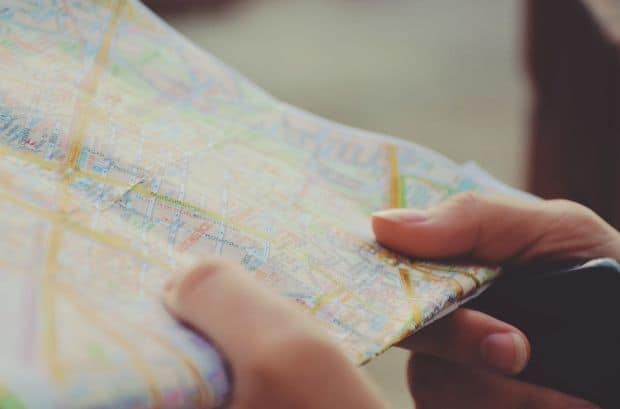
If you are a prepper that is going “all in” with a lifestyle change toward that of personal readiness, you can make the journey that much easier and so much sweeter by moving to a state that is amenable to your goal.
If you are thinking about buying property in a rural community or remote part of undeveloped wilderness and making a go of it, you’d be wise to make sure you won’t have an abundance of government red tape getting in the way!
Believe it or not, there are laws governing what you can do with rainwater, what kind of guns you can own, what kind of vehicle is or is not road legal and so much more out here in this Land of the Free that we call home.
But, mercifully, that is not the case everywhere. Today we are bringing you a list of the top 15 states for preppers, places where you can, more or less, have it your way with the minimum amount of interference from local and state governments.
No matter what kind of personal preparedness lifestyle you have in mind, there is bound to be one or more states on this list that will do the trick.
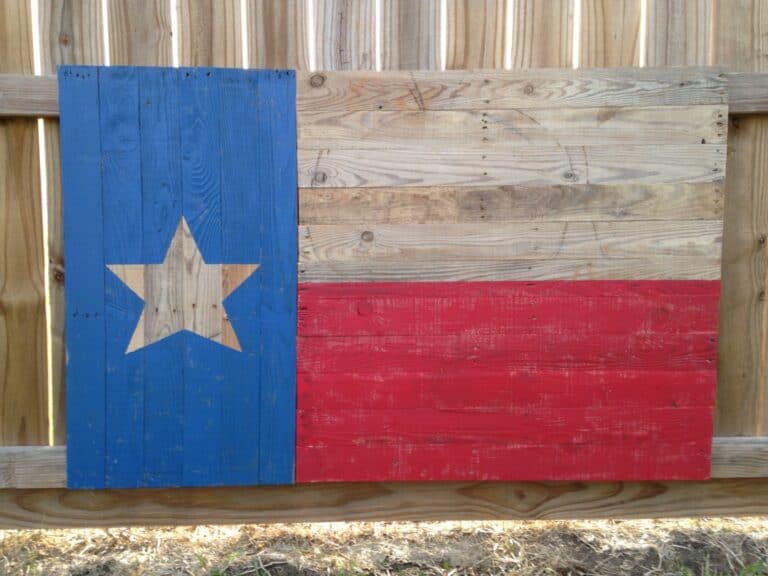
Texas
- Pros: Varied terrain, generally few building codes, minimal gun laws, pro-freedom culture, great options for off-grid power.
- Cons: Taxes on property can be high, extreme climate; border region is becoming a conflict zone.
Often thought of as the very freest state in a free country, Texas has curried much in the way of tourism and favorable trade owing to its cultivated ideology of rugged independence and devil-may-care attitude towards the thoughts of others.
Though the actuality of Texas does not quite live up to the mystique, the truth is that Texas is still a great state, and an excellent state for preppers who went to homestead, owing to varied terrain, minimal building codes in small communities and rural areas, and excellent options for generating your own off-grid power.
But a working homesteader or suburban prepper alike will still have need of and enjoy the states uniformly good gun rights, recently made all the better by the implementation of permitless constitutional carry, and an all-around attitude of independence, grit and can do attitude.
Most preppers will find a lot to love about Texas, whether you are on the rolling plains of the northern end or the dry, hard caliche of the southwest quarter, with the one “fly in the ointment” being the typically high property taxes and increasing troubles near the border with Mexico.
However, it is worth mentioning that Texas is prone to experiencing as much variation in the weather as there is in the terrain, and a lot of it is extreme.
Swelteringly hot, humid summers are the rule and the state is infamous for the preponderance of natural disasters in the form of tornadoes and severe thunderstorms. Hurricanes coming through the Gulf of Mexico are not out of the question.
Freak occurrences of cold weather aren’t out of the question, either, so you’ll need to be ready for anything if you’re going to reside in the great expanse of Texas.
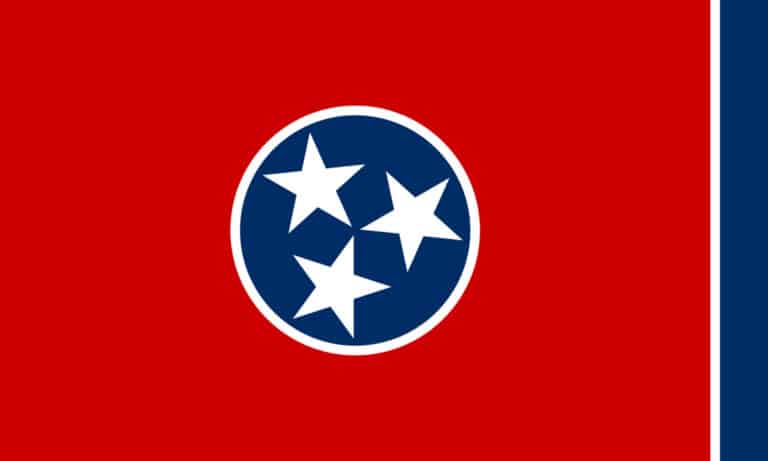
Tennessee
- Pros: Low taxes on land and most property, culture of rugged individualism, strongly pro-gun, much of state suitable for farming and homesteading.
- Cons: Only so-so options for off-grid power, land in regions around cities quickly rising in price.
The first contender among the southern states on our list, though not one that is traditionally thought of as belonging to the deep south, Tennessee still remains a smorgasbord of advantage as far as living the prepper lifestyle is concerned.
A statewide culture of independence buttressed by neighborly hospitality, varying terrain including mountains on the eastern part of the state, low taxes all around and generally pleasant weather makes Tennessee a great place to be.
More to the point, however, Tennessee is proudly pro-gun through and through, with a very dim view of thugs, and hardly any major strongholds of leftist thought to be found. Tennessee is also rightly famous for its fertile soil that is suitable for a variety of growing endeavors, vegetables, fruit and livestock alike.
For the dedicated homesteader, though, the state does not score particularly high on ratings for suitability of off-grid power creation, with solar being the best bet though it is not outstanding.
No matter where you want to be and what sort of lifestyle you want to live, Tennessee can accommodate you and do so in a way that will synergize with a self-reliant mindset.
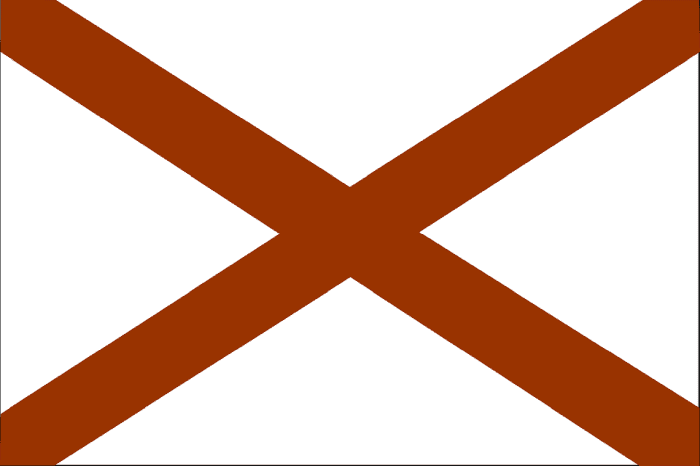
Alabama
- Pros: Varied, usually pleasant weather, low cost of land ownership, excellent property rights, strongly pro-gun, amenable to true off-grid lifestyles.
- Cons: Incredibly hot, miserable summers
Alabama is an iconic southern state, and throughout its contentious history has remained a bastion for a certain kind of person who would rather rely on themselves than any sort of government or societal institution.
Those who want to go their own way will likely enjoy living in Alabama, with the state’s typically pleasant weather, very low cost of living and cheap land, and strong tendency toward affirming personal freedoms.
Off-grid lifestyles are more viable in Alabama than nearly anywhere else, with low property taxes, excellent property and water rights, staunch pro gun and pro self-defense laws, and minimal building codes when outside of major cities and other settlements.
If you want to set up a working homestead away from it all and live life your way, Alabama can help you make that happen. And by help I mean stay out of your way!
If there is anything to take away from Alabama, though, it is that one must be prepared for its incredibly hot, humid and downright miserable summers. Mosquitoes might as well be the state bird, too.
Also, many places throughout the state are quite poor so you must have a plan in place for legitimate sustainment or be financially set prior to committing because there will not be much in the way of commerce or any other safety nets to help you if you get in over your head.
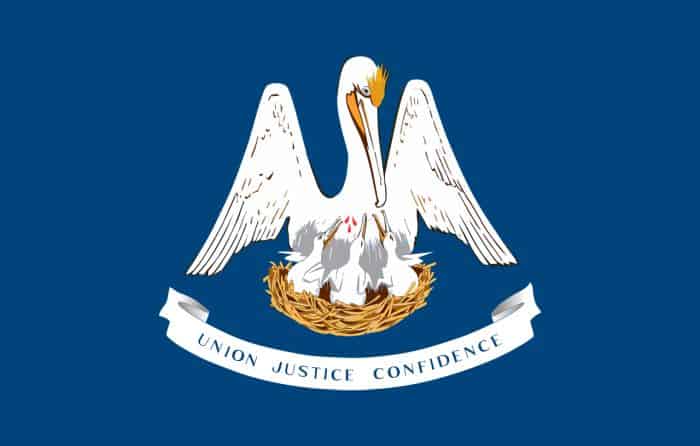
Louisiana
- Pros: Excellent hunting and fishing opportunities, great place to disappear in, most small communities close knit.
- Cons: Property and water rights not particularly great, fewer farming opportunities.
Louisiana is a culturally varied state with something of a dark and mysterious past. To most outsiders, Louisiana conjures up visions of deeply shadowed, wooded, alligator-infested swamps, ancient voodoo practices, and a general air of unsavoriness.
Only half of that is true, because most residents of Louisiana are entirely pleasant, but the part about the swamps and the alligators is definitely true!
Louisiana is something of a Mecca when it comes to hunting and fishing due to a flourishing and greatly varied ecosystem. You will find all sorts of wild game to fill your freezer with, and this is a tremendous benefit to those who would prefer to return to the old ways of putting dinner on the table.
Also, much of the state is sparsely inhabited and quite difficult to get to, meaning that small communities tend to be close-knit and highly reliant on each other even in the best of times. Earning trust and fitting in might prove to be a challenge but once you do you will have a ready-made clan of fellow survivors to rely on.
Unfortunately, Louisiana is not the freest of the free states on our list, particularly concerning property and water rights, and that means you might be forced to move way out if you want to get out from beneath the ink-stained government thumb.
Additionally, the widespread swamp land that is so iconic to the state means you will have fewer opportunities for cropping or even putting in a garden depending on where you live.
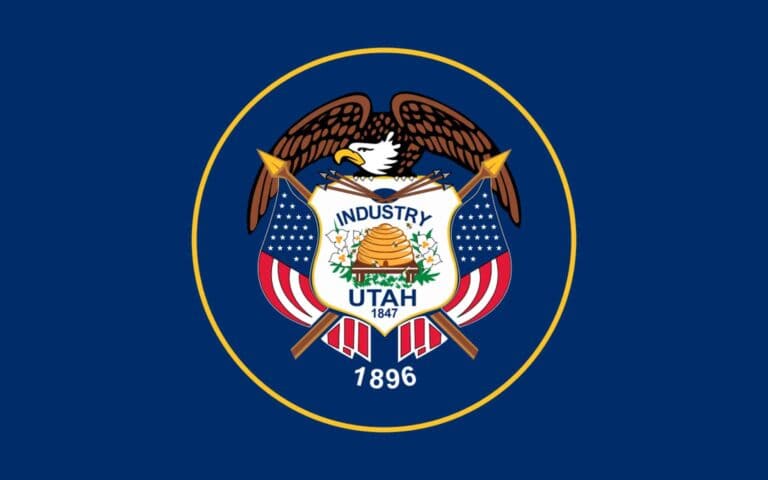
Utah
- Pros: Varied terrain and weather, strong rights to privacy, generally good gun and property rights.
- Cons: Land can be expensive, considerable amounts of government owned land, certain areas have high taxes.
Utah is a state of contrasts. The terrain could consist of anything from rugged mountains to bait deserts to gently rolling prairie and everything in between. The state’s strong privacy rights for its citizens, is generally pro-gun, and has steadfast respect for the property rights of the individual.
On the other hand, Utah contains a dramatic amount of government owned land, private land can prove to be expensive and highly taxed in certain regions, and major settlements can prove to be quite clannish when it comes to politics and policy.
Despite this, Utah is still by and large a frontier lifestyle state, with those who want to move way out and start a ranch or a homestead finding much to like.
People generally go out of the way to be polite and mind their own business, so no matter who you are or what you are moving away from your new neighbors and fellow residents will probably be welcoming- so long as you don’t rock the boat too much!
With the overwhelming majority of the state’s population concentrated in just a couple of major cities, those who yearn for a smaller, close-knit existence that harkens back to the lives our parents and grandparents lived will find Utah to be just the ticket.
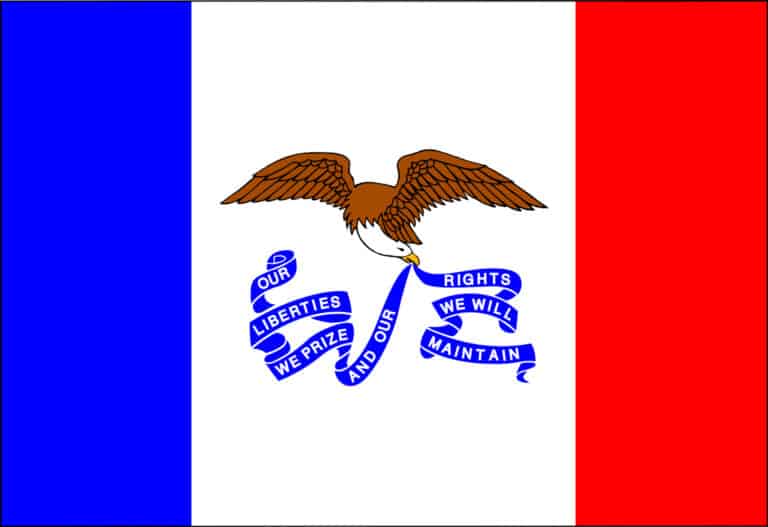
Iowa
- Pros: Affordable land, Great agriculture opportunities, dependable off-grid power options, very supportive small business climate.
- Cons: Restrictive statewide and local building codes, severe weather can be nasty in summer and winter.
The Hawkeye State is an inspired choice for some preppers, and might just offer the ideal combination of excellent agriculture opportunities, inexpensive land and plenty of ways to maximize off-grid power. For those who want their very own self-sufficient homestead or compound, you could do a whole lot worse than Iowa.
Something else Iowa has going for it is a business climate that is very supportive of small businesses and entrepreneurs. If you have a skill or trade that you want to turn into a money-making venture, there are few states that will offer as much opportunity or be as welcoming as Iowa.
On the downside, the state suffers from restrictive statewide and local building codes that can make it difficult to put up the kind of structures that you might prefer, or that might be needed in an emergency situation.
Additionaly, the Iowa gets it from both ends when it comes to severe weather: nasty thunderstorms and tornados with massive rainfall often lead to flooding in the spring and summer, and bone-chilling winter storms that will freeze the state solid.
Assuming you aren’t put off by the building restrictions and the chance of volatile weather throughout the year, Iowa is a fine place to make a go of it.

Alaska
- Pros: Abundant wildlife, extremely low population density, few regulations, great opportunity to live off the grid.
- Cons: Difficult or impossible to reach some remote areas, utterly harsh climate at times, potential for conflict with other preppers.
No list of the friendliest states for preppers would be complete without mentioning Alaska. This vast and sparsely populated state offers an unparalleled opportunity to truly live off the grid and well away from civilization if that is what you are looking for.
With an abundance of wildlife and a very low population density, it is possible to go for months without seeing another soul, if you so choose.
Of course, the flip side of this is that Alaska can be an extremely difficult place to get around in, much less live in, and some remote areas may be inaccessible except by air.
Additionally, as one should expect most of the state will be subjected to absolutely brutal winters, and large swathes of the state are nearly uninhabitable due to permafrost. Agriculture cannot be your mainstay of provision here.
And then there is the small matter of other preppers. In a place like Alaska, it is entirely possible that you could find yourself in conflict with another group of preppers over land or natural resources.
Things are just different up there, and the long, dark winters combined with the isolation and harshness can definitely take a toll on the psyche in a very tangible way. This is something you must keep in mind if you are planning on bugging out to or living in Alaska.
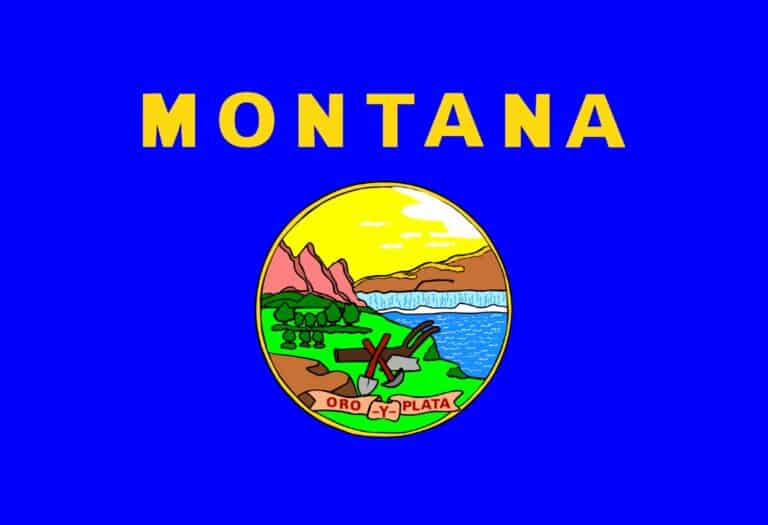
Montana
- Pros: Good hunting opportunities, lots of available land, low population density.
- Cons: Winters long and very harsh, short growing season, can be difficult to find work.
For many preppers, Montana checks a lot of boxes. It boasts beautiful scenery, good hunting opportunities and a low population density that will make it easy to avoid people and allow yourself room to expand if you so choose.
Additionally, the state is extremely 2nd Amendment friendly, which is always a plus for preppers.
However, Montana also suffers from some equally significant drawbacks. The winters here are long and very harsh, with snowfall sufficient in some places to bury you in your home.
In addition the growing seasons are quite short, and this can make it difficult to become self-sufficient in terms of food production unless you plan on doing a lot of hunting and fishing, and that might not be sustainable or even dependable in the mid- to long-term.
Additionally, it can be difficult to find work in Montana, particularly in the more remote areas of the state.
Overall, Montana is a decent option for rugged preppers, but it certainly has its challenges.
Idaho
- Pros: Large communities of preppers, mostly mild climate, good farming opportunities
- Cons: Increasingly popular, rapidly rising costs for housing and land.
Idaho is a perhaps uniquely good choice for preppers. This is because the state is overtly friendly toward the idea of prepping and has many widespread and well established prepper communities. Whether you want to live in an off-grid commune or a modern hamlet full of hard-charging, self-sufficient and like-minded people, Idaho has you covered.
Additionally, the climate here is mostly mild, which makes it ideal for farming and gardening. The state is famous (infamous?) for potatoes, but you can grow a lot more than that here.
And, as an added bonus, many of the state’s residents are quite libertarian minded and will likely leave you alone to do your own thing so long as you don’t bother them.
Of course, all of this comes at a cost. As more and more people have caught wind of Idaho’s desirability as a great place to live and something of a prepper haven, the costs for land and housing have been rising rapidly.
Additionally, some of the remote areas of the state are beginning to fill up with new arrivals, which is something to keep in mind if you are looking for a rural retreat or complete isolation.
All things considered, Idaho is still a great choice for preppers, but depending on your budget and where you settle it may not be the best option for those who are looking to get away from it all.
Missouri
- Pros: Great off-grid power resources, diverse geography for farming, seasonal climate.
- Cons: Severe storms in spring and summer, crime can be surprisingly high in places.
Missouri offers preppers a lot to like. First, the state has a lot to offer those who want their own off-grid power resources like wind and solar generators. Additionally, the state’s geography is quite diverse and nearly all parts are suitable for growing at least one mainstay crop. That means that there are a lot of different farming opportunities available.
Finally, the climate here is dependably temperate, though a tad humid. Spring and fall are mild, summers and hot and winters are not too cold, which makes it easier to get by without air conditioning (or heating) at least part of the time.
However, Missouri also has some significant drawbacks. First, the state is prone to severe storms in both the spring and summer months.
This can make it difficult to protect or insure your property and belongings, and you’ll never be free from worry that “the Big One” is just around the corner. Additionally, some parts of
Missouri have surprisingly high crime rates , particularly in urban areas like St. Louis and Kansas City. This is something to keep in mind if you are planning on bugging in rather than bugging out in an emergency situation as violence will radiate out from such “hubs” whenever society is on shaky ground for the long term.
Overall, Missouri is a good option for preppers who want to go totally off-grid with dependable agri-opportunities, but you’ll need stay alert for threats from Mother Nature and your fellow man alike.
Oregon
- Pros:Rural areas encourage community and self-sufficiency, lots of prepper enclaves.
- Cons:Dreadful social politics, government corruption, high cost of living.
Oregon is an inspired state for preppers for a number of reasons. First, the state is much more than a typical “west coast strip” and has a lot of rural areas which encourage community and self-sufficiency.
This is because people in such areas are often more reliant on each other for things like help with farm work, getting supplies from the store, and so forth. Additionally, there are quite a few prepper-centric enclaves in Oregon where like-minded individuals have banded together for mutual protection and support.
But Oregon has some pretty severe downsides to go with the good, and at the head of all is that Oregon has some dreadful social politics.
The state is controlled by a corrupt Leftist government which is utterly hostile to conservative values, and is more than happy to squander taxpayer money on things like “sanctuary cities” and absurd social programs while letting partisan blocs do whatever they will with no consequences. If things went bad in Oregon, you’ll truly be on your own.
Also the cost of living in Oregon is quite high, homes and land alike, which can make it difficult to get by even if you have a good job.
Overall, Oregon is a good option for preppers who want to be around like-minded individuals while staying far, far away from the cities, and don’t mind the challenges that come with doing so.
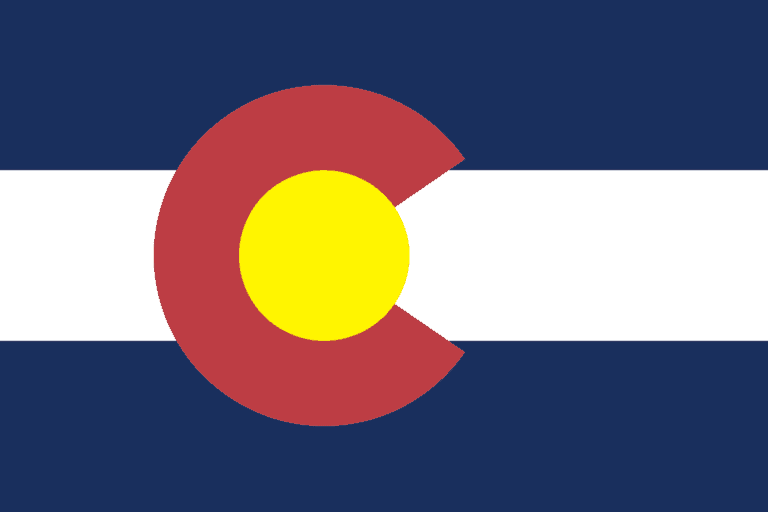
Colorado
- Pros:Beautiful scenery, tons of natural resources.
- Cons:Very high cost of living, harsh winters, rural areas can be quite rugged.
Colorado is among the most beautiful states in the Union, and second to none when it comes to rugged, majestic scenery. It’s a great place to enjoy the outdoors, and if you like living a lot closer to the land you own you’ll definitely appreciate it more in this state.
To help in this endeavor, Colorado has tons of natural resources that you’ll be able to make good use of, and whatever your plans are for off-grid living you will have options when it comes to power generation, building or crafting materials, and so forth.
Of course, all of this comes at a cost. First, the cost of living in Colorado is quite high, and the popularity of the state means that acquiring land can be cost prohibitive unless you are already pretty well off.
As expected, the winters here can be long and produce tons and tons of snow, which means you’ll need to be prepared for extended periods without power or heat if you want to bug in.
Also keep in mind that many rural areas, though beautiful, are just as rugged and difficult to traverse as they look. This can make ensuring mobility in times of trouble difficult.
Overall, Colorado is a good option for preppers who want beautiful vistas and have all the resources they need at their disposal, but be prepared to pay a hefty price for the privilege.
Washington
- Pros: Several established prepper retreats, rural areas have frontier feel, varied and lush terrain.
- Cons: Terrible politics, corruption in larger cities, high cost of living
Washington, like Oregon, is a viable and interesting state that is surprisingly friendly to preppers. It is known for its lush, varied terrain (including actual rainforest!) which provides plenty of options and strategic advantages for bugging in or out as needed.
Additionally, there are several well-established prepper retreats in Washington which offer a measure of community and support that can be invaluable for those who want a sense of community or the aid of a MAG. Not for nothing, the rural parts of the state feel like an entirely different place compared to the coast, almost like an old frontier setting.
However, it is important to remember that the state’s politics are terrible. The larger cities, Seattle chief among them, are rife with corruption and the cost of living in and anywhere near these hives is sky high.
Additionally, the political climate is such that the rest of the state is usually fleeced to funnel resources toward the coast, and most conservatives are viewed with outright suspicion if not hatred.
This can make it difficult to find like-minded individuals with whom to prepare unless you are far to the east.
If you want to make a go of it near the coast or any larger settlement, you’ll basically be prepping in occupied territory but the eastern reaches of the state are a totally viable choice.
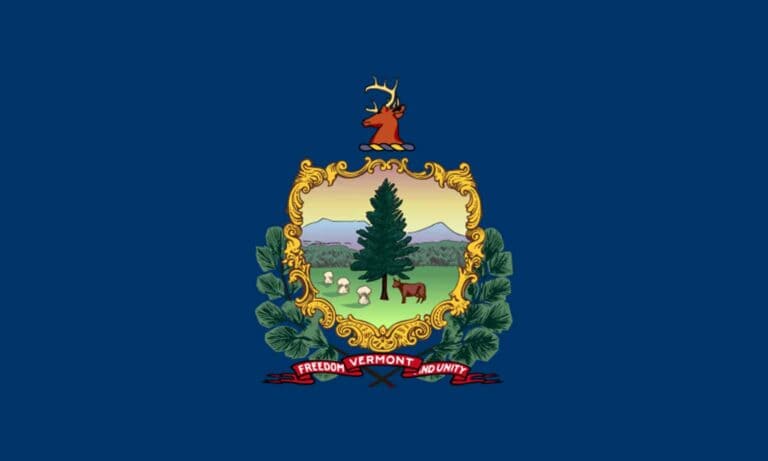
Vermont
- Pros: Plenty of rural land, excellent hunting, plenty of natural resources
- Cons: Harsh winters, incredibly muddy spring thaw, economically uneven
Ah, Vermont. Land of trees, and a land of breathtakingly wondrous autumnal displays the likes of which few other states can match.
The state is mostly rural, with plenty of land to go around for those who want to get away from it all. If you enjoy hunting, this state is a veritable paradise with some of the best game in the Northeast.
And like many other states on this list, Vermont has an abundance of natural resources that can be put to good use by crafty, DIY inclined preppers.
But the winters of Vermont are the bill for that spectacular fall: winters are sharp and lengthy, and the spring thaw produces some of the most incredibly muddy conditions imaginable in the U.S.
This can make getting around difficult, and power outages are not uncommon. Combined with a rural lifestyle you might be bugging in whether you want to or not!
Another quirk of Vermont is the economy: it is quite uneven, with pockets of incredible wealth mixed in with vast tracts of comparative poverty. This can make reliance on bartering more difficult, as those with little may have little to offer their well-off neighbors, and finding adequate work challenging.
If you have some financial resources to begin with, Vermont is a good choice.
West Virginia
- Pros: Cheap land, good agricultural opportunities, good hunting
- Cons: Shabby infrastructure, economically depressed, many rural communities hanging by a thread.
West Virginia is a state that is beloved by many of its inhabitants, but it is something of a tragic love. The state has been left behind by much of the country in terms of development and infrastructure, and this is evident everywhere.
But for those who are looking for cheap land on which to homestead, farm or build a bug out retreat, West Virginia has plenty to offer. There are also good agricultural opportunities in many parts of the state thanks to long growing seasons and good soil, and the hunting is uniformly excellent.
However, the overall economic situation in West Virginia is dire. The state has been hemorrhaging population for decades, and many of the remaining rural communities are hanging by a thread, and imbued with a distinct feeling of hopelessness. You might wind up living in or near a ghost town as time drags on.
Considering that the state’s infrastructure is in a very poor state of repair, this might present logistical hazards for work and in times of crisis. This is evident on any road trip through the state, as potholes and broken down bridges are ubiquitous.
Overall, West Virginia is a mixed bag. There are definitely abundant and cheap opportunities for preppers seeking a patch to call their own, but the state’s financial woes make everything slower, worse off and shabbier.
Runners Up
Some states that just missed our list may still offer exactly what you are looking for, but didn’t make the cut for various reasons. If none of the other states above strike your fancy you should consider looking in to the one of the following. Any might be just what you need!
Michigan
Michigan is a state with a lot to offer preppers. There is plenty of rural land, good hunting, and an abundance of natural resources. The winters can be harsh, but the spring thaw produces some of the most beautiful conditions imaginable.
The economy in Michigan is quite strong, and the state has a diverse mix of industries that provide ample opportunities for employment.
However, the cost of living can be high, especially in the more urbanized areas and these areas are often roiling with crime. Furthermore recent events have shown that the state government is entirely willing to enact draconian policies on its citizens when they please.
North Dakota
North Dakota is mostly rural, rugged and remote. You are far, far up north, here, and the winters are incredibly harsh.
However, if you can tough it out, North Dakota may be what you are looking for. Cheap land is easy to come by, and there are good opportunities for hunting and trapping.
The state is also home to a number of national parks and other natural areas that offer solitude and beauty in spades. Just be sure you’re prepared for the long, dark winter and not too many people around!
South Dakota
You can think of South Dakota much like North Dakota, just with the intensity turned down a few pegs. The winters are a bit milder, the land is a bit more expensive and there are more people around in general.
However, all of the other advantages of North Dakota apply here as well. If you don’t mind a few more neighbors, South Dakota might be the place for you!
New Hampshire
New Hampshire is a state that can appeal to some preppers who want to live in the country but keep the cities a bit closer than usual. The rural areas are indeed beautiful, and there is an abundance of natural resources to be had.
The economy is also strong, though the state relies on only a few major industries that provide real opportunities for employment. And, like much of New England, you are going to pay more to live here compared to similar properties elsewhere.
Conclusion
You can be a prepper anywhere, but some states will make the journey towards true self-sufficiency more difficult than others.
You can get a leg up on the task I had by settling in a state that will put the fewest amount of obstacles in your path, and offer you the greatest amount of survival-centric amenities. Take the time to review the states on this list and see which one looks the best for your desired goals.
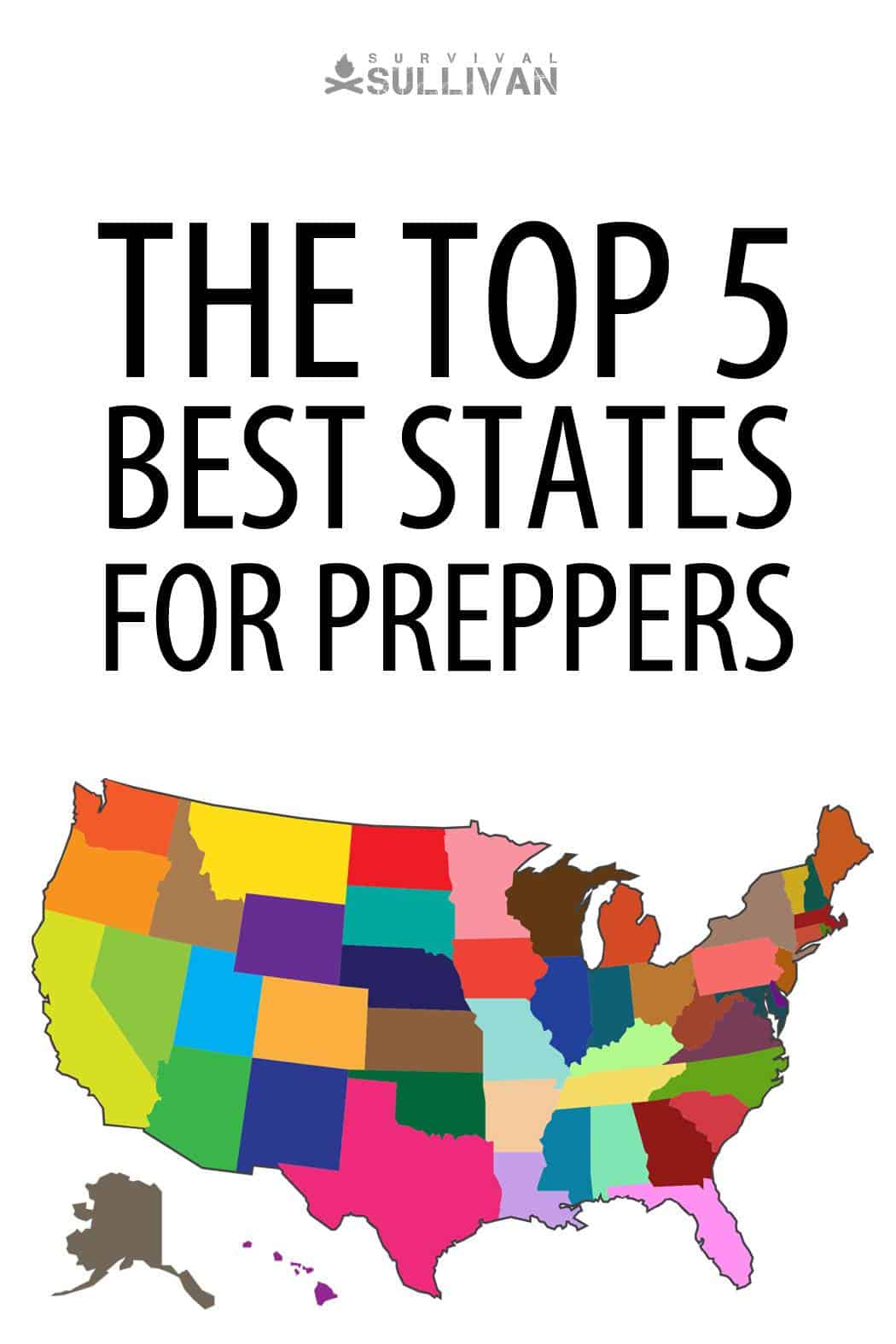

Tom Marlowe practically grew up with a gun in his hand, and has held all kinds of jobs in the gun industry: range safety, sales, instruction and consulting, Tom has the experience to help civilian shooters figure out what will work best for them.

Utah over Oklahoma lol whatever. You best look at them laws and attitudes again.
I live in and love Tennessee. We do have the standard liberal pockets. Nashville-Knoxville-Chattanooga-Memphis. Eastern Tennessee a different world even for us Middle/West Tennesseans. Lots of available land there with very few people north and south of I-81.
Thank you for not naming my home state.
Was Kentucky considered?
How does Kentucky fit in? I will really appreciate any advice.